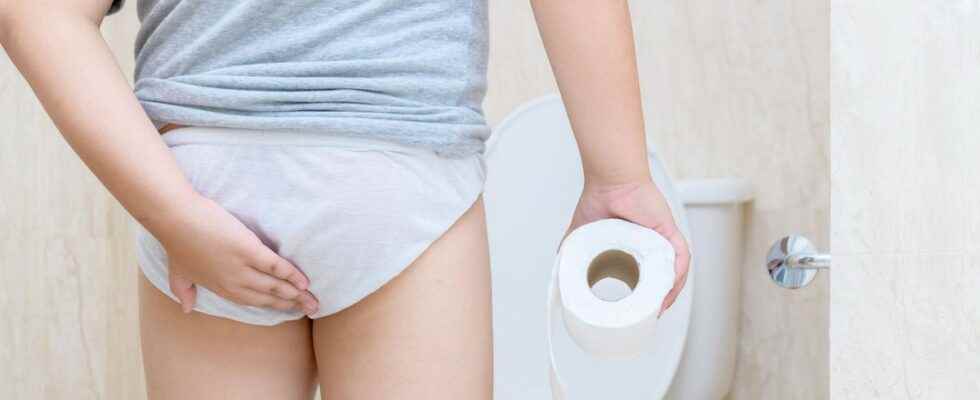Published on
Updated
Reading 3 mins.
Marie Lanen
Head of parenting section (baby, pregnancy, family)
in collaboration with
Andreas Werner (paediatrician)
While the Covid 19 pandemic has made it possible to improve sanitary practices in schools, going to the toilet remains problematic for many elementary school students. This is confirmed by a study conducted by Harris Interactive for Essity and Harpic.
The finding is clear: more than 8 out of 10 children still refrain from going to the toilet at school according to the survey of 600 children and 400 parents, from October 7 to 24, 2022 by Harris Interactive for Essity and Harpic . A problem that according to pediatrician Andreas Werner “is responsible for many constipation in children, and especially in girls.” Explanations.
Lack of hygiene and pedagogy, harassment… The toilets, a dubious place
According to the data collected during the survey, the hygiene of toilets in schools is one of the major problems encountered by children: 1 in 2 children believe that the toilets are dirty or smell bad. When asked for explanations, primary pupils mention the toilet not being flushed (82%), 61% of children say that “it smells bad”, that it is cold (53%) and that it is is often dirty (50%).
Many children mention the fact of not having clear instructions as to the use of the sanitary facilities. Indeed, a quarter of children feel that they have not received specific instructions for using the toilets at school.
On the other hand, toilets at school are often a privileged place for harassment between pupils: for 40% of children, it is a place where children annoy other children. More speaking, 20% of the children surveyed say they have already been bothered in the toilet. For all these reasons, only 42% of children go there as soon as they feel like going.
What are the solutions for children to go to the toilet peacefully?
Professionals and children agree on the solutions and actions to be implemented so that school toilets become a safe place. Thus, 86% of primary school students believe that it would be easier for them to go there if the rules for good behavior were clearly explained to all the other children, such as not throwing toilet paper on the floor. , to flush the toilet, not to look at the others… On the other hand, according to the experts, it is necessary to stop separating girls and boys but rather to think about better segmentation, in particular in relation to the age of the children. Solution validated by those concerned: 62% of them would be more comfortable being only with children of the same school level and not older children. The boys mention the need to remove urinals for closed toilets. Finally, 84% of children would like to be able to go to the toilet when they feel the need and not at specific times such as during recess.
Refusing to go to the toilet, what consequences on health?
The survey reveals that 60% of children say they have a stomach ache and 58% have problems concentrating in class because they refrain from going to the toilet. Another alarming data, 30% of students evoke burns when going to urinate. The toilets are such a dreaded place that 33% refrain from drinking so as not to want to go there… According to pediatrician Dr Andréas Werner, the fact that the toilets are often dirty, unheated and not conducive to serenity leads to many health problems. “Restraining yourself from urinating can cause urinary tract infections and a form of incontinence because the small child does not have enough muscle strength to hold back urine. As for the fact of holding stools, this can cause constipation, encopresis (involuntary emission of stools), anal fissures… The child can quickly fall into a vicious circle, the more you hold back, the more the stools become consistent and large diameter. The pain felt during the emission of these stools generates a fear of going to the toilet again. Children sometimes have to be prescribed laxatives for years,” concludes the doctor.
